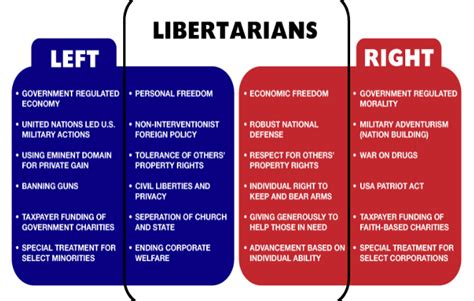Introduction
In the realm of American politics, the term “liberal” holds a prominent position, embodying a set of ideologies that shape the political landscape. Understanding the concept of liberalism is essential for navigating the complexities of AP Government and deciphering the nuances of political discourse. This comprehensive guide delves into the definition of liberalism, its core principles, and its impact on the American political system.

Origins and Evolution
The origins of liberalism can be traced back to the Enlightenment era of the 17th and 18th centuries. Philosophers such as John Locke and Immanuel Kant laid the intellectual foundations for liberalism, emphasizing the importance of individual liberty, natural rights, and limited government. The American Revolution and the drafting of the U.S. Constitution were heavily influenced by these liberal ideas.
Throughout history, liberalism has evolved to address the changing needs of societies. In the 19th century, social liberalism emerged, focusing on issues of social justice, equality, and workers’ rights. In the 20th century, the rise of neoliberalism placed greater emphasis on free markets and limited government intervention in the economy.
Core Principles and Values
Liberalism is characterized by a set of core principles that have remained relatively consistent over time. These principles include:
- Individual Liberty: Liberals believe that individuals should have the freedom to pursue their goals and aspirations without undue interference from the state.
- Equality: Liberals advocate for equal opportunities and treatment for all citizens, regardless of race, gender, religion, or any other arbitrary distinction.
- Limited Government: Liberals believe that the government should play a limited role in the lives of individuals and that its powers should be clearly defined and constrained.
- Social Justice: Liberals strive to create a more just and equitable society by addressing issues such as poverty, discrimination, and inequality.
- Tolerance: Liberals value diversity and respect for different opinions and beliefs.
Liberalism in American Politics
In the American political context, liberalism is typically associated with the Democratic Party. Liberal candidates and policies often focus on issues such as:
- Social welfare programs: Liberals support government programs that provide assistance to those in need, such as healthcare, education, and housing.
- Environmental protection: Liberals believe that the government has a responsibility to protect the environment and ensure a sustainable future.
- Gun control: Liberals advocate for measures to reduce gun violence and promote public safety.
- Reproductive rights: Liberals support the right of women to choose and have access to safe and legal abortions.
- Immigration reform: Liberals generally support policies that provide a path to citizenship for undocumented immigrants and promote a more humane immigration system.
Impact on American Society
Liberalism has had a profound impact on American society, shaping laws, policies, and cultural norms. Liberal principles have contributed to the establishment of a more just and equitable society, including:
- Civil rights movement: Liberalism played a central role in the civil rights movement of the 1960s, which led to the passage of landmark legislation such as the Civil Rights Act of 1964 and the Voting Rights Act of 1965.
- Social safety net: Liberal policies have created a social safety net that provides essential services to millions of Americans, including Social Security, Medicare, and Medicaid.
- Environmental protection: Liberal initiatives have resulted in the establishment of environmental regulations and agencies that protect air and water quality, conserve natural resources, and combat climate change.
Criticisms of Liberalism
Despite its positive contributions, liberalism has also faced criticism from various perspectives. Some argue that:
- Excessive government intervention: Critics claim that liberal policies lead to an over-expansion of government and stifle individual freedom and economic growth.
- Erosion of traditional values: Some critics view liberalism as hostile to traditional values such as religion, patriotism, and family structure.
- Social engineering: Liberal policies aimed at achieving social justice and equality have been accused of attempting to engineer society and undermine individual responsibility.
Conclusion
Liberalism remains a powerful force in American politics and society, shaping the country’s political discourse, policy decisions, and cultural norms. Understanding the definition, core principles, and impact of liberalism is essential for informed participation in democratic governance.
FAQs
-
What is the difference between liberalism and conservatism?
Liberalism emphasizes individual liberty, equality, limited government, and social justice, while conservatism generally favors tradition, order, and limited government intervention in the economy.
-
Is liberalism a left-wing ideology?
In the American political context, liberalism is considered a left-wing ideology compared to conservatism, which is a right-wing ideology.
-
What are the key differences between modern liberalism and neoliberalism?
Modern liberalism places a greater emphasis on social justice and government intervention to promote equality, while neoliberalism advocates for free markets and limited government intervention in the economy.
-
How has liberalism contributed to the American civil rights movement?
Liberal principles and policies played a pivotal role in the civil rights movement, leading to the passage of landmark legislation and the expansion of civil rights for all Americans.
-
What are some examples of liberal policies?
Liberal policies include expanding access to healthcare, promoting environmental protection, implementing gun control measures, and supporting reproductive rights.
-
What are some criticisms of liberalism?
Criticisms of liberalism include arguments that it leads to excessive government intervention, erodes traditional values, and attempts to engineer society.
-
What is the future of liberalism?
The future of liberalism is shaped by ongoing debates and challenges, such as the rise of populism, technological advancements, and the need to address global issues.
-
How can I learn more about liberalism?
You can learn more about liberalism by reading books, articles, and news reports, attending lectures or seminars, and engaging in political discussions.
